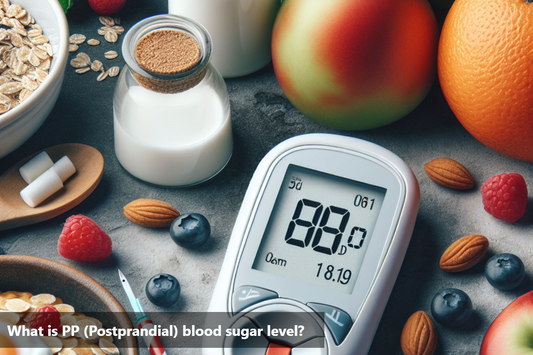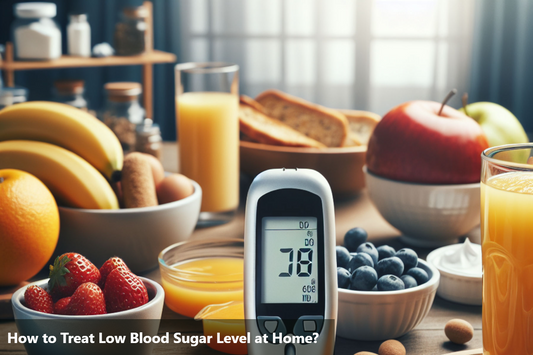Diabetes affects blood sugar levels. Diet is crucial in managing and preventing diabetes. Certain foods can increase the risk of diabetes. Quality of diet matters more than specific foods. Foods high in sugars can spike blood sugar levels over time. A balanced diet can regulate blood sugar levels and promote health. Nutrient-dense choices have helped improve my diabetes management. Simple diet changes can impact health outcomes. Let's discuss practical ways to make informed decisions for a healthy balance and lower diabetes risk.
Highly Processed Foods and Sugar
Highly processed foods and added sugars have been linked to various negative health outcomes, particularly when consumed in excess. Here are some of the key issues associated with highly processed foods and sugar consumption in diabetes:
Blood Sugar Control: Highly processed foods and foods high in added sugars can cause rapid spikes in blood sugar levels, leading to hyperglycemia (high blood sugar). This can be particularly problematic for individuals with diabetes, as they already have difficulty regulating blood sugar levels. Consistently high blood sugar levels increase the risk of diabetes-related complications, including cardiovascular disease, kidney damage, nerve damage, and eye problems.
Insulin Resistance: Diets high in processed foods and added sugars have been linked to insulin resistance, a condition where the body's cells become less responsive to insulin. Insulin resistance is a key feature of type 2 diabetes and can lead to elevated blood sugar levels. Consuming large amounts of highly processed foods and added sugars can exacerbate insulin resistance, making it more challenging to manage blood sugar levels.
Weight Management: Highly processed foods and added sugars are often calorie-dense but low in nutrients and fiber, making them easy to overconsume. Excess calorie intake can contribute to weight gain and obesity, which are major risk factors for type 2 diabetes. Maintaining a healthy weight is important for managing diabetes and reducing the risk of complications.
Inflammation: Diets high in processed foods and added sugars can promote chronic inflammation in the body, which is associated with insulin resistance, impaired glucose tolerance, and an increased risk of diabetes-related complications. Chronic inflammation can also contribute to the progression of diabetes and other metabolic disorders.
Gut Health: Emerging research suggests that the gut microbiota play a role in the development and management of diabetes. Diets high in processed foods and added sugars can disrupt the balance of gut bacteria, leading to dysbiosis and inflammation in the gut. This, in turn, may contribute to insulin resistance and poor blood sugar control.
Cardiovascular Health: Diabetes is a major risk factor for cardiovascular disease, and diets high in processed foods and added sugars can further increase this risk. These foods can raise cholesterol levels, increase blood pressure, promote arterial stiffness, and contribute to the formation of atherosclerotic plaques, all of which can lead to heart disease and stroke.
Unhealthy Fats and Red Meat
Unhealthy Fats: Bad fats, like saturated and trans fats, are found in processed foods, fried items, baked treats, and fatty meats. These fats can raise levels of LDL cholesterol (the "bad" kind) and fats called triglycerides, which can up the chances of heart problems. If you have diabetes, cutting down on these unhealthy fats is important for a healthy heart.
Effects on Insulin Sensitivity: Eating lots of saturated and trans fats is linked to a problem called insulin resistance, where cells don't respond well to insulin. This can lead to high blood sugar levels and raise the risk of getting type 2 diabetes or making existing diabetes worse. Insulin resistance makes it harder for people with diabetes to manage their blood sugar well.
Inflammation: Bad fats can trigger inflammation in the body, which is tied to insulin issues, trouble processing glucose, and more risks for diabetes complications. Long-lasting inflammation could make insulin sensitivity and blood sugar control even tougher for those with diabetes.
Red Meat: Red meat, especially processed types like bacon, sausage, and deli meats, has lots of bad fat and cholesterol. Eating too much red meat is linked to more chances of heart problems, type 2 diabetes, and certain cancers. Also, processed red meats often have additives and preservatives that can harm health.
Heme Iron: Red meat is a big source of heme iron, a type easily absorbed by the body compared to the non-heme iron in plant foods. Too much heme iron from red meat is linked to higher chances of type 2 diabetes. Lots of iron in the body can lead to oxidative stress and inflammation, which might raise the risk of insulin trouble and diabetes.
Cooking Risks: Preparing red meat by grilling, frying, or roasting at high heat can create compounds like advanced glycation end products (AGEs). These substances can lead to issues like insulin resistance, inflammation, and oxidative stress, which are all connected to diabetes problems and their effects.
Carbohydrates and Diabetes
What Happens When You Eat: When you eat, your body breaks down carbohydrates into sugar, which goes into your blood. This raises your blood sugar levels. If you have diabetes, it's essential to watch how many carbs you eat to keep your blood sugar in check.
Know about Glycemic Index: Glycemic index tells you how fast a food raises your blood sugar. Foods like white bread, white rice, sugary cereals, and snacks make your blood sugar shoot up quickly. People with diabetes should choose low-GI foods like whole grains, fruits, and veggies to keep their blood sugar stable.
Count Your Carbs: People with diabetes often track how many carbs they eat to manage their blood sugar. This helps them adjust their insulin and meal plans. By keeping an eye on carbs, they can avoid high or low blood sugar levels.
Get More Fiber: Fiber is a carb found in plants that your body can't digest. Eating high-fiber foods like whole grains, fruits, and veggies slows down sugar absorption. Fiber also keeps you feeling full, aids digestion, and keeps your gut healthy.
Watch Your Portions: Control how much carb-containing food you eat to keep your blood sugar steady. Eating too much can raise your blood sugar too much, while too little can make your energy levels drop. Have a mix of carbs, protein, and healthy fats to maintain your blood sugar and energy levels.
Plan Your Meals: Planning meals with a variety of carbs, like whole grains, fruits, and legumes, helps you balance your blood sugar and get all the nutrients you need. Including low-GI carbs, high-fiber foods, and healthy protein and fats supports good blood sugar control and overall health.
Bottom Line
Understanding the impact of diet on diabetes risk is crucial for managing and preventing the condition. Our food choices are key to overall health. Highly processed foods and excessive sugar intake can increase the risk of diabetes. Unhealthy fats and red meat consumption also play a role. Choosing healthier fats and moderating red meat can reduce the risk. Opting for whole grains over refined carbs helps manage diabetes better. A balanced diet with whole foods, lean proteins, and healthy fats is essential for overall well-being. Fats, and complex carbohydrates is key to managing and preventing diabetes. By incorporating these dietary choices into everyday life, individuals can take charge of their health and well-being.
This Blog post is an initiative by DiabeSmart, to provide accurate and Nutritionist / Doctor approved information related to Diabetes. DiabeSmart is India's first Food brand designed specifically for Diabetics, that has been clinically tested on Diabetics and Pre-Diabetics to deliver 55% - 70% lower Sugar spikes. DiabeSmart is part of Lo! Foods - India's leading brand for Everyday Functional Health foods.









